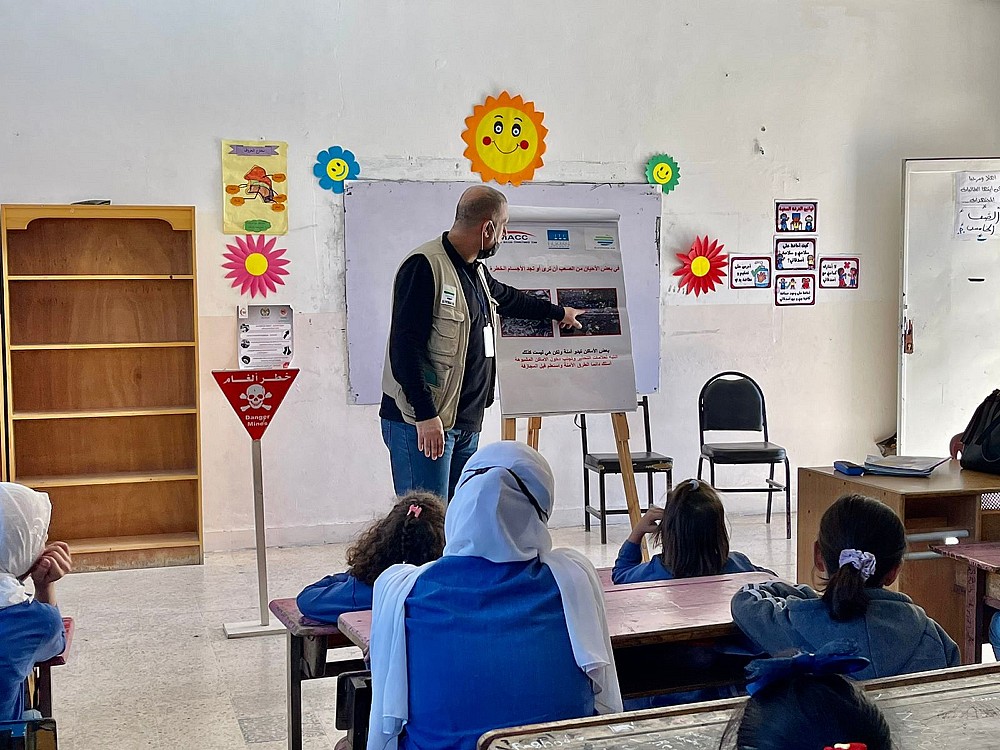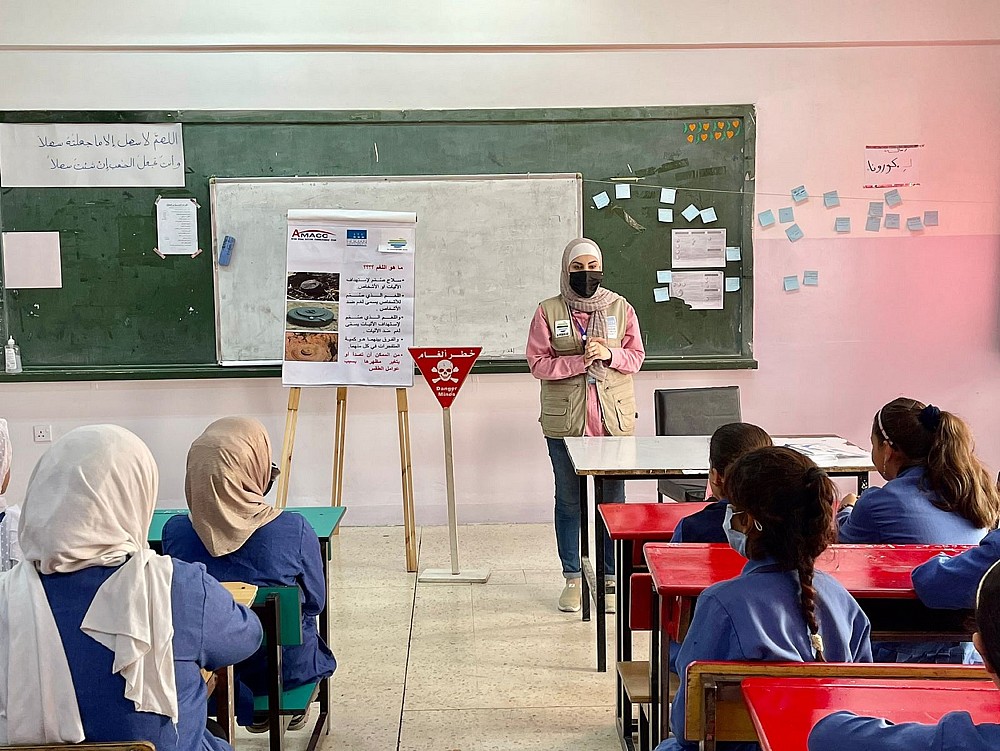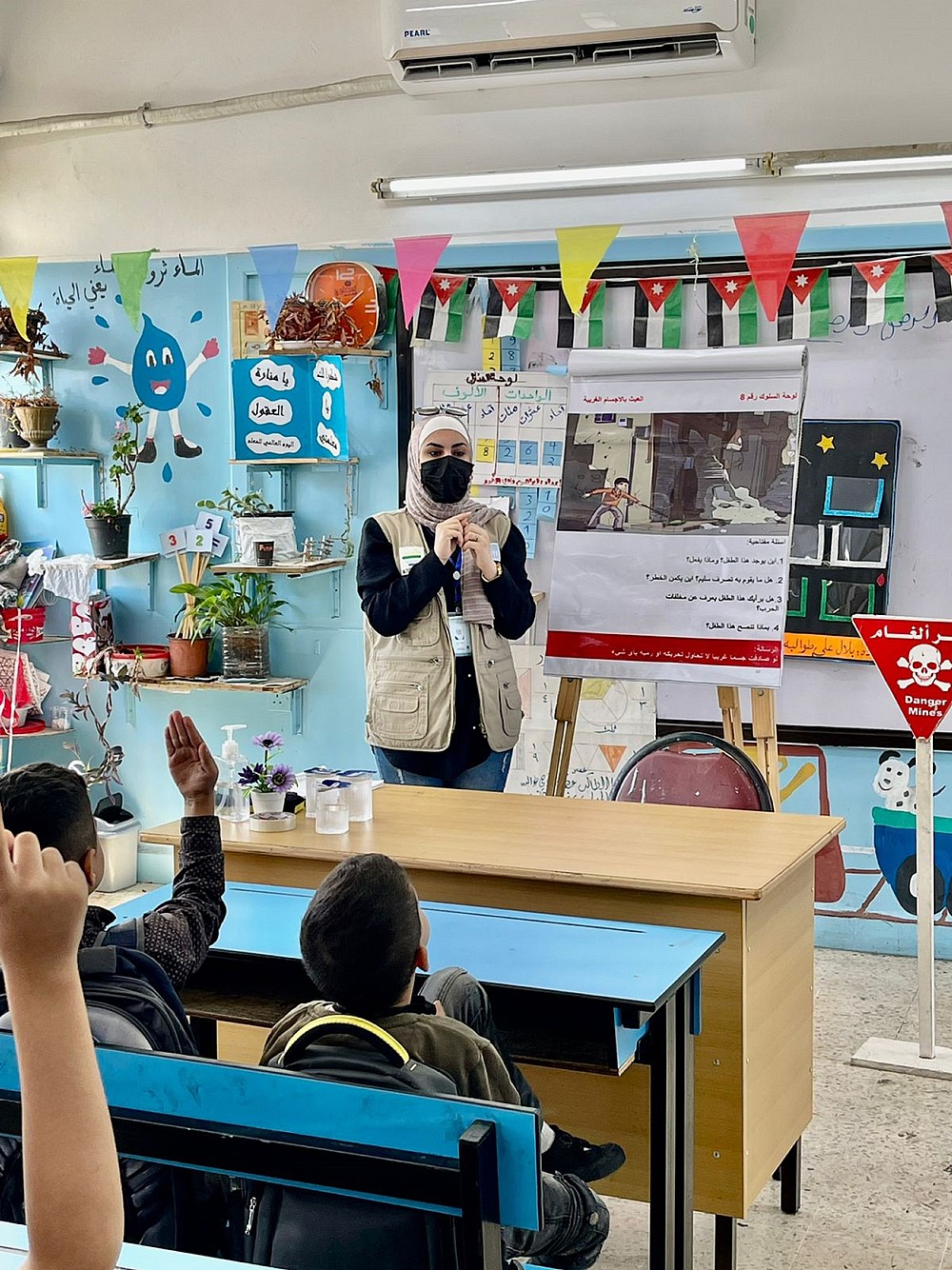Risk Education for Syrian Refugees
Jordan is estimated to have roughly 660,000 registered Syrian refugees. One of the best ways to prevent the risk of injury from mines and unexploded ordnance is by raising awareness and promoting safe behavior. That is why in March 2021 we have started another risk education project in Jordan together with our implementing partner Arab Mine Action Consultancy Crew (AMACC).
The project is aimed at Syrian refugees and addresses both adults and children, who are especially vulnerable, since they can confuse dangerous items for toys. This is why, AMACC has been working with local primary and secondary schools as well as several NGOs and have so far achieved great results. From March to December 2021 alone, they partnered with 12 local schools and 14 NGOs and successfully carried out 266 risk education and health education workshops for over 8,329 Syrian refugees.

In addition to providing information on the dangers of mines and explosive remnants of war, the training also focuses on how to prevent the spread of infectious diseases. The participants learn about the importance of wearing a mask to prevent the spread of diseases such as COVID-19 and taking care of their own safety as well as the health of others.
A variety of teaching methods, such as brochures, videos, quizzes, and lectures are being used and approximately 14,400 materials on risk education as well as health education were distributed among the participants.

In light of the COVID-19 pandemic, emphasis was put on staying safe and healthy so the workshops in the first few months were carried out remotely, focusing primarily on primary and secondary schools in Irbid Governorate. We are grateful the conditions have changed, and the AMACC risk education teams were able to return to face-to-face education. The goal of the project is to implement 576 workshops for more than 12,000 Syrian refugees and equip them with knowledge that will allow them to stay safe once they return to their homes.
This truly life-saving learning program would not be possible without the donation of the Slovenian Ministry of Foreign Affairs, who has strongly supported our work in Jordan since 2017.

